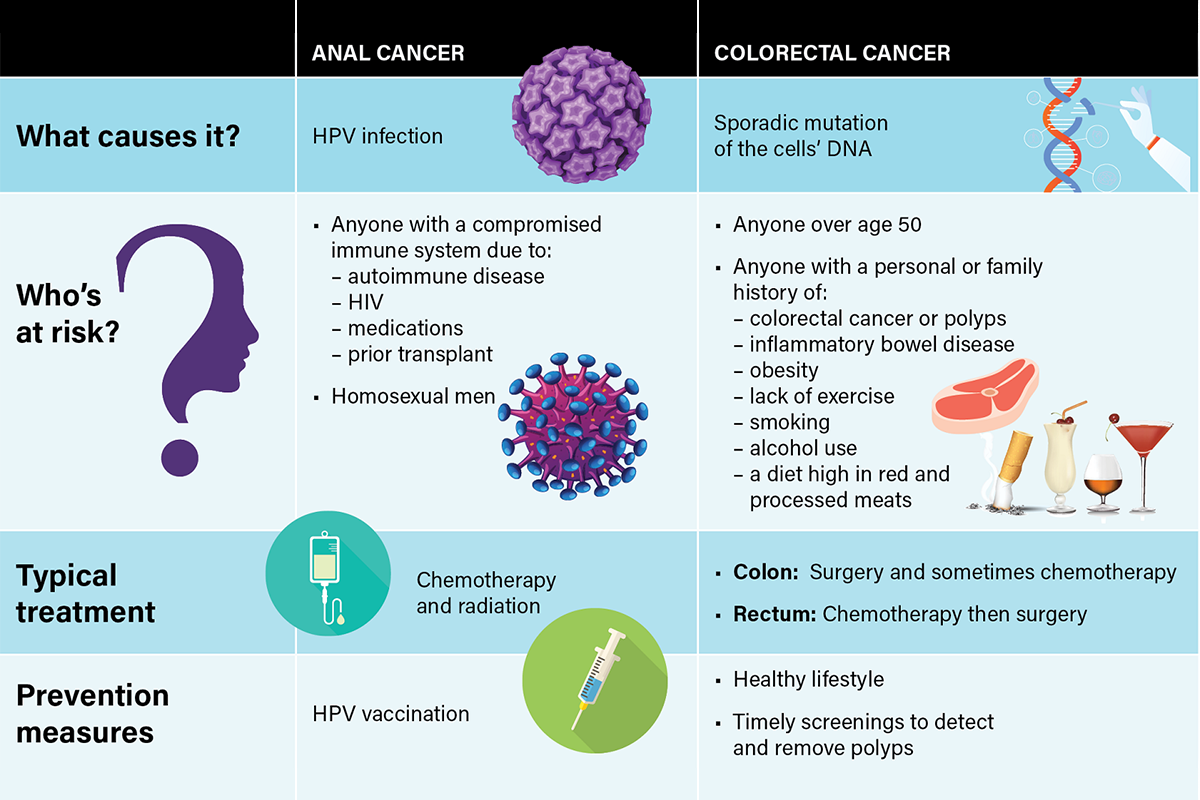Incidences Of Anal Cancer On The Rise While Many Are Ignorant About HPV Links To It
Source: Thailand Medical News Nov 24, 2019 6 years, 2 weeks, 6 days, 1 hour, 28 minutes ago
Each year about 51,000 new cases of
anal cancer are diagnosed worldwide. The 5-year survival rate for people with
anal cancer is 59%.Each year thousands die from the disease and almost 91 percent of the cause of
anal cancer is by
HPV. Currently there are about 1.17 million people worldwide struggling with
anal cancer.

What is disturbing is more and more younger adults are developing
anal cancer and it’s a growing problem in the US, China, Japan, Korea, Vietnam the rest of the South East Asian countries. The vast majority of cases are associated with the human papillomavirus, but about three-quarters of American adults don't know
HPV causes the disease.
It’s a disease that most people do not want to talk about and also are shy to mention even with their family members when they are experiencing symptoms and hence very often, it is often diagnosed when its already in the latent stages.
America is experiencing a “dramatic and concerning” rise in the rate of new
anal cancer cases and deaths from the disease, particularly among young men and elderly women, researchers of a new study on
anal cancer reported.
The US incidence of squamous cell carcinoma of the anus the most common type of
anal cancer rose 2.7 percent per year over a recent 15-year period, while
anal cancer mortality rates increased 3.1 percent per year during that time.
Given this rate, the disease can be considered as one of the fastest accelerating causes of cancer incidence and mortality in the U.S., said the study’s lead author Dr Ashish Deshmukh, an assistant professor at the The University of Texas Health Science Center at Houston (UTHealth).
 Professor Dr Ashish Deshmukh
Professor Dr Ashish Deshmukh
Dr Desmukh told
Thailand Medical News, “The rates are increasing very rapidly.It’s concerning. Traditionally, our perception of
anal cancer has been that it’s one of the rarest forms of cancer and because of that, it’s neglected.”
Hollywood Actress Farrah Fawcett, who died of the disease in 2009 , was one of the first high-profile patients to talk about her diagnosis publicly.
From some of the startling statistics: The risk of developing
anal cancer was five times higher for black men born in the mid-1980s compared to those born in the mid-1940s. That may be because young black men are disproportionately affected by HIV, which raises the risk for developing the cancer, Dr Deshmukh said.
Surprisingly,the risk doubled among white men and white women born after 1960. The disease may surpass cervical cancer to become
the leading human papillomavirus-linked cancer in elderly women, the study noted. One possible reason: Older people have weaker immune systems, impairing their ability to clear
HPV from their bodies, and elderly women outnumber elderly men.
The startling proportion of cases diagnosed when the cancer had already spread to other parts of the body doubled, which suggests the rise in cases isn’t driven by more intense screening that would catch early-stage tumors, Deshmukh noted.
Dr Desmukh commented, “It’s really hard to understand what might be causing the rise in incidence and mortality,” he added. Possible reasons include a shift in sexual behaviors in recent decades, including normalization of
anal sex and more sexual partners, and the rise in obesity rates, which could be a factor, he said.
In the study, published in the Journal of the National Cancer Institute, researchers analyzed data in U.S. cancer registries from 2001 through 2015. They also looked at causes of death from a database compiled by the National Center for Health Statistics over that time.They found 68,812 cases of anal cancer and 12,114 deaths from the disease.
The majority of these cases are associated with the human papillomavirus, but about three-quarters of American adults don't know
HPV causes the disease, a recent study, also led by Deshmukh, found. He called the findings “shocking.”
Understanding Anal Cancer And How To Prevent HPV Related Cancers
Anal cancer develops when malignant cells form in the tissues of the anus.
Almost 6,540 people are diagnosed with anal cancer each year in the US alone, with 91 percent of the cases believed to be caused by
HPV, according to the Centers for Disease Control and Prevention.
Human papillomavirus or
HPV is the most common sexually transmitted infection in the U.S. and also globally.Most sexually active adults in their 20s have been exposed to it, but for most, the infections clear up without causing harm.
HPV also causes almost all cervical cancers and many cancers of the vagina, vulva and penis, oral and even throat cancers besides
anal cancer.
An
HPV Vaccine is available to protect against harmful strains of the virus and it’s the only vaccine that actually prevents cancer. The earlier you get it, the more effective it is. It is recommended it for both boys and girls and makes an incredible difference in the health of these kids later on in life.
Risk For Anal Cancer
Besides being infected with
HPV, the US National cancer Institute says they include: Having many sexual partners,Having anal sex, Being over 50 ,Experiencing frequent anal redness, swelling and soreness,Having anal fistulas (abnormal openings),Smoking
Symptoms Of Anal Cancer
They can be uncomfortable to talk about with a doctor, but early detection is key:
-Bleeding from the anus or rectum, which is often the first sign of the disease
-Pain or pressure in the area around the anus
-Itching or discharge
-A lump near the anus
-A change in bowel movements, like narrowing of stools
Diagnosis For Anal Cancer
It’s often found when a doctor performs a digital rectal examination ie inserting a gloved, lubricated finger into the lower part of the rectum to feel for lumps. That’s how actress Marcia Cross’s was discovered during a routine medical appointment. She credits it for saving her life.
 Actress Marcia Cross
Actress Marcia Cross
Thin, flexible instruments with lights and cameras , a process called colonoscopy can also help doctors take a closer look at any suspicious spots and a biopsy can determine if cancer is present.
Imaging scans are used to find if the cancer has spread to other parts of the body.
Treatment Options For Anal Cancer.
It depends where the tumor is located and whether it has metastasized.
Standard treatment includes radiation, chemotherapy and surgery to remove the tumor.
Doctors can also remove the anus, the rectum and part of the colon in a major operation called an abdominoperineal resection.
It’s used only if other treatments don’t work or if the cancer comes back after treatment, according to the Amercian cancer Society .
Parting Words.
As with all cancers, early detection is extremely important. More than 80 percent of patients whose
anal cancer had not spread lived for at least five more years after diagnosis. That number dropped to 30 percent when the cancer had spread to the liver or lungs.
References:
- Suk R, Montealegre JR, Nemutlu GS, et al. Public knowledge of human papillomavirus and receipt of vaccination recommendations. [published online September 16, 2019]. JAMA Pediatrics. doi: 10.1001/jamapediatrics.2019.3105.
- Caffrey M. Boys don’t get HPV vaccination because doctors don’t recommend it, study finds. The American Journal of Managed Care® website. ajmc.com/conferences/sgo-2018/boys-dont-get-hpv-vaccination-because-doctors-dont-recommend-it-study-finds. Published March 25, 2018. Accessed September 19, 2019.
- Kempe A, O’Leary ST, Markowitz LE, et al. HPV vaccine delivery practices by primary care physicians. [published online September 16, 2019]. Pediatrics. Doi: 10.1542/peds.2019-1475.


